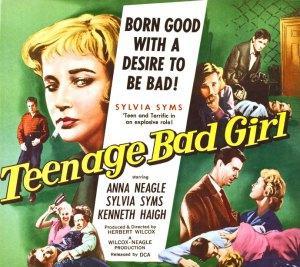This essay first appeared in Cliterati on September 29th; I have modified it slightly to fit the format of this blog.
 I’ve often written about the Cult of the Child, that strange remnant of the Victorian Era which teaches that children (and their definition of the term extends far beyond that Nature uses) exist in what cultists term “innocence”, a state which they seem to equate with “purity” and Divine grace, but which in actuality means ignorance and sexual repression. It’s easy to tell when a writer adheres to this strange belief system: she tends to depict teenagers as blameless angels absolutely nothing like any young person who exists in the real world, seems unable to remember what she and her friends were like when they were that age, and expresses surprise and confusion when a young person resists being treated like a convict, an infant or a potted plant:
I’ve often written about the Cult of the Child, that strange remnant of the Victorian Era which teaches that children (and their definition of the term extends far beyond that Nature uses) exist in what cultists term “innocence”, a state which they seem to equate with “purity” and Divine grace, but which in actuality means ignorance and sexual repression. It’s easy to tell when a writer adheres to this strange belief system: she tends to depict teenagers as blameless angels absolutely nothing like any young person who exists in the real world, seems unable to remember what she and her friends were like when they were that age, and expresses surprise and confusion when a young person resists being treated like a convict, an infant or a potted plant:
A 15-year-old prostitute has left a Tulsa [Oklahoma] shelter and is back on the streets, saying she prefers the illegal sex-trade business to her home life, [police] spokesman Mark Woodward said…”She was in protective custody and doesn’t want any help…There is no indication of a drug history. That’s the life she preferred. There is no telling how much money she was making….She doesn’t like her family, and she didn’t want us to contact her family,” he said…
The story treats this as though it were something remarkable, but it is nothing of the kind; the majority of underage prostitutes (or as they’re now labeled, “sex trafficking victims”) in the US have been in the “foster care” system at one time or another, and in the UK about 90% of teen sex workers who are forced into the system will escape at the earliest possible opportunity (though their agency is denied by the myth-makers, who claim they are “tracked down by their traffickers and disappear from care”). So entrenched is belief in the incompetence of young people, and so tenacious the need to believe in their asexuality and “innocence”, that child cultists prefer to imagine young sex workers as doggedly pursued by ninja “pimps” who can undetectably spirit them away from houses and institutions without ever getting caught, rather than recognize the obvious fact that they simply prefer self-reliance to regimentation, surveillance and virtual (or actual) imprisonment. As I wrote in “Too Young To Know”:
With rare exception, teen runaways leave home for a reason; they’re not lured away by “bad influences” or abducted by “traffickers”, but rather pushed away by factors such as physical or sexual abuse or parental rejection of their homosexuality or transsexuality. But because our laws define people under 18 as chattel, they can be arrested by cops and forced back into the situation from which they fled, or else sentenced to “child welfare” systems so horrible many of them return to the street as soon as possible. Child labor laws keep them from getting regular work (and such work would expose them to capture by police anyway), which leaves them with roughly three alternatives: theft, begging or prostitution; the latter is nearly always the easiest and most lucrative…the child cultists want to believe teenagers could never think of prostitution on their own, but this is total nonsense; teen runaways don’t need to be forced or indoctrinated into a form of exchange which predates the human species, and in fact (as revealed by a recent DoJ-funded study) 90% of them are not. Yet, nearly all current programs for dealing with teen prostitutes are based on exactly the opposite assumption, and if such a girl denies she has a “pimp” she is assumed to be lying.
The latter assumption is even more destructive than you may realize: it is entirely possible that some of these girls would be content to remain in custody and even submit to the (usually religious) brainwashing procedures such programs generally include, were it not for the repeated pressure from “authorities” to identify a “pimp” who exists only in their twisted minds.
 The notion that young adults are more like children than they are like other adults, with its corollaries that they are ignorant, incompetent and infinitely malleable, is of very recent vintage; throughout most of human history people assumed adult responsibility as soon as they were able (usually about 14), and there was no such thing as “adolescent rebellion”. As psychologist Robert Epstein explains, “infantilization makes many young people angry or depressed…they can’t do anything meaningful without parental permission…and…the more [they] are infantilized, the more psychopathology they show.” Teens who are at least treated well are usually content to put up with the restrictions, the arbitrary rules and other such annoyances in exchange for the privilege of living at home and not having to work, but those who are abused and/or rejected see no reason to do so…and who can blame them? Once they get a taste of self-ownership, even at the cost of a dirty, dangerous, precarious life in the street, is it any wonder they reject attempts to cage and collar them again? The dogma that most of them are “controlled” by “pimps” is literally 180 degrees from the truth: they reject institutionalization precisely because they aren’t used to being controlled by anybody, and have no desire to be.
The notion that young adults are more like children than they are like other adults, with its corollaries that they are ignorant, incompetent and infinitely malleable, is of very recent vintage; throughout most of human history people assumed adult responsibility as soon as they were able (usually about 14), and there was no such thing as “adolescent rebellion”. As psychologist Robert Epstein explains, “infantilization makes many young people angry or depressed…they can’t do anything meaningful without parental permission…and…the more [they] are infantilized, the more psychopathology they show.” Teens who are at least treated well are usually content to put up with the restrictions, the arbitrary rules and other such annoyances in exchange for the privilege of living at home and not having to work, but those who are abused and/or rejected see no reason to do so…and who can blame them? Once they get a taste of self-ownership, even at the cost of a dirty, dangerous, precarious life in the street, is it any wonder they reject attempts to cage and collar them again? The dogma that most of them are “controlled” by “pimps” is literally 180 degrees from the truth: they reject institutionalization precisely because they aren’t used to being controlled by anybody, and have no desire to be.
